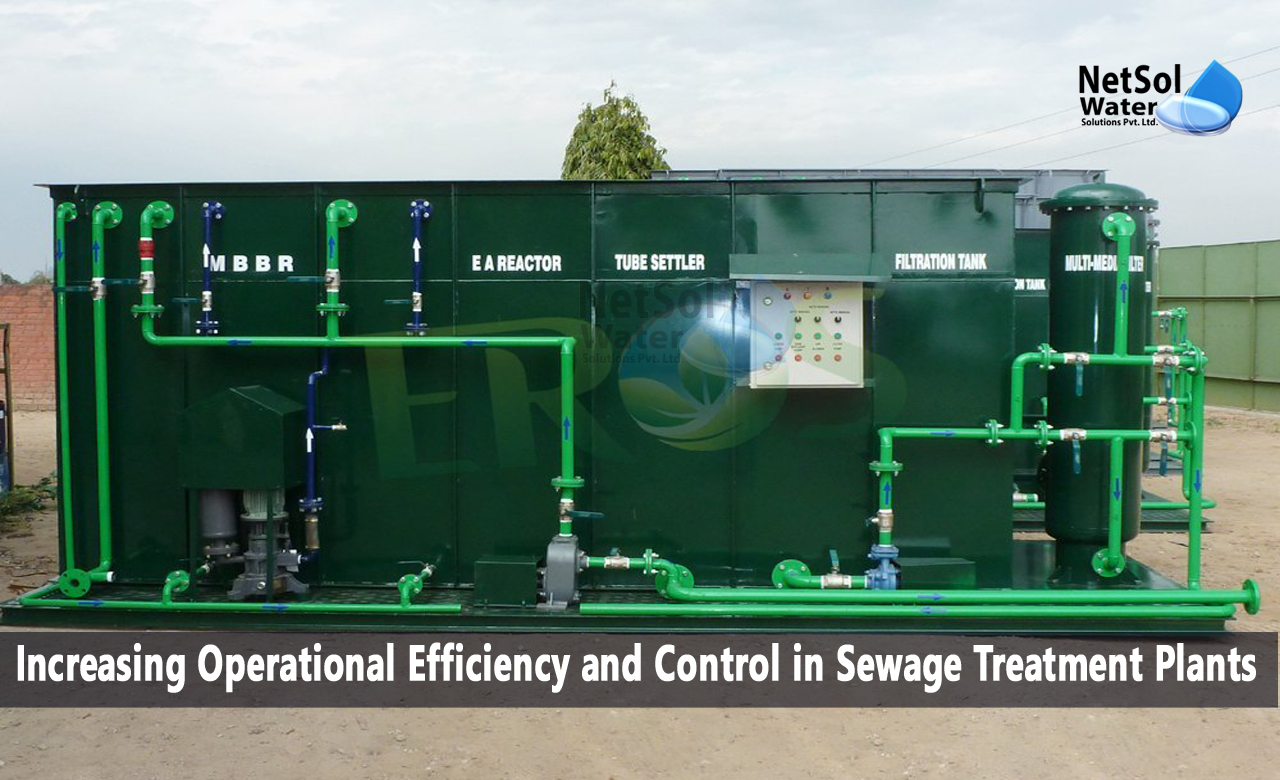How to Increasing Operational Efficiency and Control in STP Plants?
Sewage treatment plants play a crucial role in maintaining clean and sustainable environments by treating wastewater before it is discharged back into water bodies. As the demand for efficient and environmentally friendly wastewater management increases, automation technology is revolutionizing the operation and control of sewage treatment plants.
In this blog, we will explore the benefits and advancements of sewage treatment plant automation, focusing on how it enhances operational efficiency and control.
Increasing Operational Efficiency and Control in Sewage Treatment Plants:
1. Understanding Sewage Treatment Plant Automation:
Sewage treatment plant automation involves the integration of advanced control systems, sensors, and software to automate and optimize various processes within the treatment plant. These automated systems monitor and control the treatment processes, ensuring optimal performance, minimizing human error, and improving overall efficiency.
2. Key Advantages of Sewage Treatment Plant Automation:
· Enhanced Operational Efficiency: Automation technology enables real-time monitoring of critical parameters such as flow rates, pH levels, dissolved oxygen levels, and nutrient concentrations. By continuously monitoring these parameters, operators can identify and address issues promptly, optimizing the treatment process and reducing energy consumption. Automation also facilitates the implementation of predictive maintenance strategies, allowing proactive maintenance to prevent equipment failures and minimize downtime.
· Improved Process Control: Automation systems provide precise control over the various treatment processes, ensuring consistent and accurate results. By automating tasks such as chemical dosing, aeration, and sludge handling, operators can achieve optimal process conditions, maximize treatment efficiency, and minimize the risk of non-compliance with regulatory standards.
· Data-Driven Decision Making: Automation technology generates a vast amount of real-time data regarding process parameters, equipment performance, and energy consumption. This data can be analyzed using advanced analytics tools to gain insights and optimize plant operations. By leveraging data-driven decision-making, operators can identify trends, detect anomalies, and implement targeted improvements to enhance overall plant performance.
· Enhanced Safety: Automation minimizes the need for manual intervention in potentially hazardous areas of the treatment plant. By automating tasks such as chemical handling and sludge removal, operators can reduce the risk of accidents, exposure to harmful substances, and potential health hazards. This improves the safety and well-being of plant personnel.
3. Advanced Automation Technologies:
· SCADA (Supervisory Control and Data Acquisition) Systems: SCADA systems are the backbone of sewage treatment plant automation. These systems providea centralized platform for monitoring and controlling all aspects of the treatment process. SCADA systems collect real-time data from sensors, visualize it on intuitive graphical interfaces, and enable operators to remotely monitorand control plant operations. They also facilitatealarm management, historical data logging, and advanced reporting capabilities.
· Remote Monitoring and Control: Automation technology enables remote monitoring and control of sewage treatment plants. Through secure network connections, operators can access the SCADA system from anywhere, allowing them to monitor plant performance, analyze data, and make adjustments as needed. Remote monitoring and control provide flexibility, reduce response times, and allow for efficient resource allocation.
· Artificial Intelligence (AI) and Machine Learning (ML): AI and ML technologies have significant potential in sewage treatment plant automation. These technologies can analyze large datasets, identify patterns, and make intelligent predictions to optimize process parameters and energy consumption. AI and ML algorithms can adapt to changing conditions, continuously learn from data, and suggest operational improvements to enhance treatment plant performance.
4. Challenges and Considerations:
While automation technology offers numerous benefits, there are challenges to consider during implementation. These include initial investment costs, integration with existing infrastructure, cybersecurity concerns, and the need for skilled personnel to operate and maintain the automated systems. However, the long-term advantages outweigh these challenges, making automation a worthwhile investment.
Conclusion:
Sewage treatment plant automation is revolutionizing the way wastewater is managed, offering enhanced operational efficiency, improved process control, data-driven decision-making, and enhanced safety. By leveraging advanced technologies such as SCADA systems, remote monitoring, AI, and ML, operators can optimize treatment processes, reduce energy consumption, and improve overall plant performance. As the demand for efficient wastewater management grows, embracing automation will become essential for sewage treatment plants worldwide, enabling a cleaner and more sustainable future.
Netsol Water is Greater Noida-based leading water & wastewater treatment plant manufacturer. We are industry's most demanding company based on client review and work quality. We are known as best commercial RO plant manufacturers, industrial RO plant manufacturer, sewage treatment plant manufacturer, Water Softener Plant Manufacturers and effluent treatment plant manufacturers. Apart from this 24x7 customer support is our USP. Call on +91-9650608473, or write us at enquiry@netsolwater.com for any support, inquiry or product-purchase related query.



